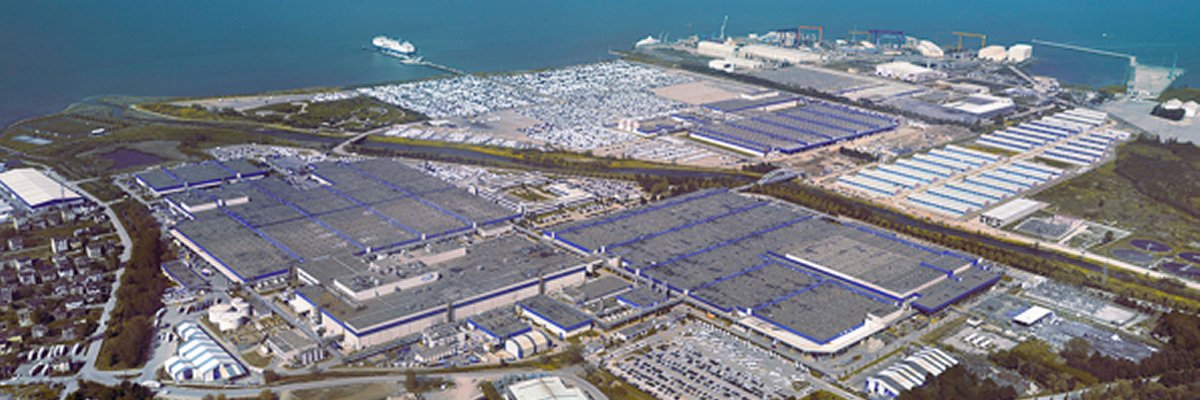News : Turkey
Turkey’s Automotive Industry on Steady Growth Track
2017-08-09

Turkey’s automotive-manufacturing sector is thriving, with the industry planning to increase exports this year despite turmoil stemming from political instability at home and war in neighboring countries.
According to data from the country’s Automotive Industry Assn., of the $142.6 billion in goods and services exported by Turkey in 2016, about $24.3 billion were manufactured by the automotive sector.
Speaking July 9 at the association’s general-assembly meeting in Istanbul, Chairman Kudret Ören said Turkish automakers expect to boost the value of their exports to $27 billion this year.
The chairman of Turkey’s Association of Automotive Parts and Components Manufacturers, Alper Kanca, tells WardsAuto that, despite the turmoil prompted by an attempted coup in July 2016, Turkey’s automotive sector last year reached its highest level of production of the past decade by manufacturing 1.48 million automobiles.
Kanca says automotive exports by value from Turkey increased 23% year-on-year between January and May this year, netting receipts of $12 billion. However, while Turkey is holding its own in international markets, he stresses Turkish manufacturers must continue researching and investing to maintain a technological edge against competitors continually improving the quality of their output.
And more needs to be spent, he argues, noting R&D spending in all sectors of Turkish industry is just 1% of overall revenues. The government seems to agree, with a 2016 policy establishing a goal of boosting the proportion of turnover allocated to R&D to 3%, with 1% being state-subsidized.
Some 28% of the R&D spending approved by the Ministry of Science, Industry and Technology focuses on the automotive sector. Kanca says the proportion of turnover spent by the Turkish auto sector on R&D has been rising and already is approaching 3%. “This ratio and the added value in the automotive industry will increase further,” he predicts.
Another government initiative, developed and released in 2016 by the ministry and widely supported by the Turkish auto-manufacturing industry, will see public money devoted to new technology under its Industry 4.0 policy, Kanca says. He says with Turkey having manufacturing costs 10% to 15% lower than Europe’s, it has the potential to invest in and create new “smart factories” that could further boost productivity.
“In the scope of Industry 4.0, we should be working on things such as the internet of things, cloud computing, common servers for Internet networks, micro-processors, artificial intelligence, data gathering, automation, embedded software, mechatronics, robotics and the like. Industry 4.0 needs to be taken more seriously and it has to be applied in various fields with a proper strategy and time planning.”
Kanca says while Turkey continues to break its own records in automotive production and exports (manufacturing 950,000 cars, 461,800 pickups and vans and 17,350 larger trucks in 2016, according to a break down from the auto-industry association), this growth may be maintained only if the country’s auto sector embraces smart factories. To do this, he suggests government and industry need to ensure their goals and policies are complementary.
International investors are interested. The London-based European Bank for Reconstruction and Development is lending €3 million ($3.2 million) to Bursa-based TKG Automotive, a components producer. The money will be combined with €2.5 million ($2.6 million) from its own resources to build a new factory and establish two new lines, nearly doubling the company’s production.
The European Bank says the new facility will deliver energy and material efficiency improvements to the company’s processes through modern technologies. Expected savings of about 590 MWh of electricity each year will be complemented by carbon-dioxide emissions reductions of 300 tons per year, the bank says. The company designs and produces automotive components for customers such as Toyota, Renault, Fiat and Honda.
Meanwhile, overall economic growth in Turkey is continuing despite the political disruption. The World Bank forecasts the country will see 3% growth this year, 3.5% in 2018, and 3.7% in 2019. Its gross national income per capita has been falling, however – from $12,590 in 2014 to $11,180 in 2016.
Original Source : http://wardsauto.com/
 Ily Es
Ily Es
Translator
- Your comment
Select Language/Country
© 2016 Naciha.com
